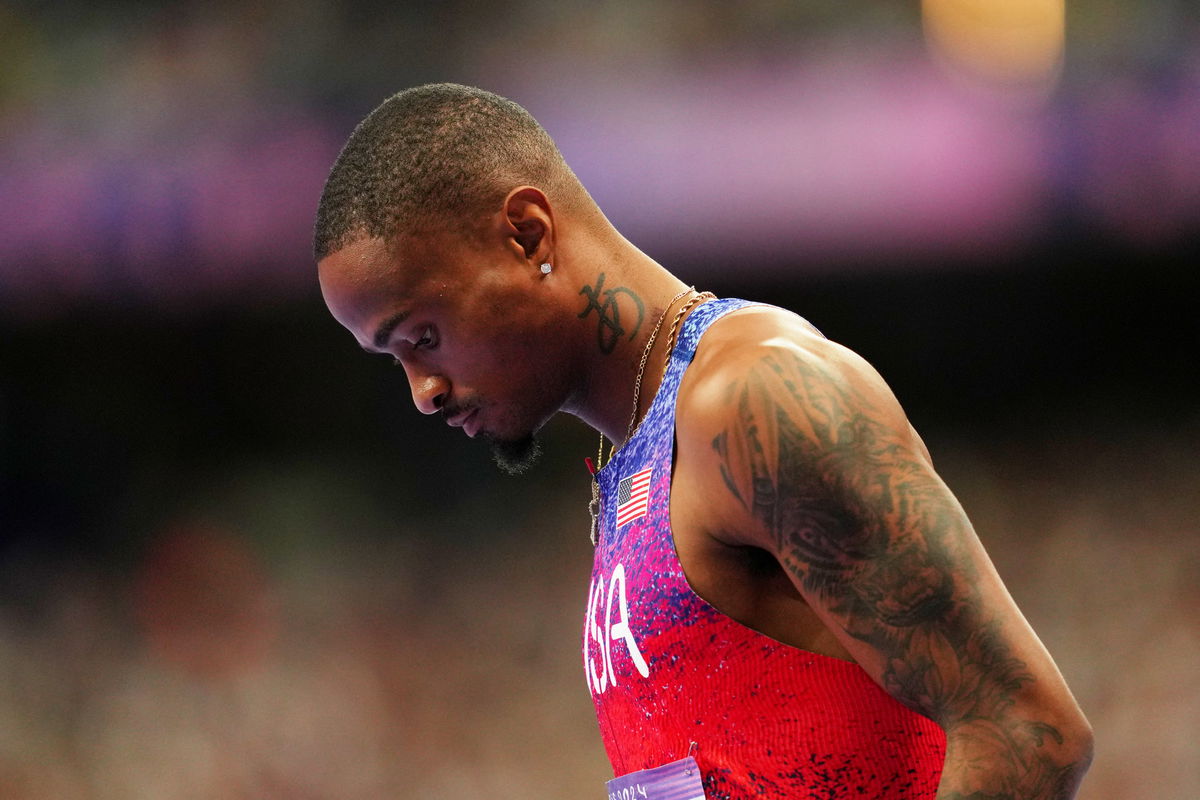
Reuters
Paris 2024 Olympics – Athletics – Men’s 400m Final – Stade de France, Saint-Denis, France – August 07, 2024. Quincy Hall of United States before the race. REUTERS/Aleksandra Szmigiel

Reuters
Paris 2024 Olympics – Athletics – Men’s 400m Final – Stade de France, Saint-Denis, France – August 07, 2024. Quincy Hall of United States before the race. REUTERS/Aleksandra Szmigiel
Quincy Hall is hearing the noise, but he’s not letting it shake him. The Olympic 400m champion has been facing a wave of fan frustration over his recent race starts, with some wondering why the American star hasn’t come flying out of the blocks like they expected. But Hall, calm and collected, has finally addressed the chatter, and his message is refreshingly honest. According to him, there’s no cause for panic. The slow starts? They’re part of the plan.
Watch What’s Trending Now!
Fresh off an injury that kept him sidelined from Grand Slam Track, Hall is easing back into competition with his eyes on the long game. His 400m performance in China showed flashes of the brilliance that earned him gold in Paris, but Hall says he’s not out here to peak in May, reinforcing that Rabat’s Diamond League meet will be another step, not the destination. His agent, Regis, echoed that strategy, revealing Hall skipped Grand Slam Track not out of choice but out of caution.
“It made more sense for him to focus on the 400m event, which is what he’s renowned for.” Hall’s not rushing to impress. He’s preparing to dominate when it counts. FloTrack took to YouTube, highlighting Quincy Hall’s early-season struggles but also shedding light on why the Olympic champion isn’t sounding any alarms. In a refreshingly candid moment, Hall broke down his training rhythm and strategic approach to competition.
ADVERTISEMENT
“I feel great; I feel like training is going great,” he said, brushing off the idea that something was wrong. “I’m just a late starter, so I don’t do November, December, or January. I really get started during February.” It’s a method he’s stuck with, and it’s worked. By design, Hall doesn’t rush to peak early in the season. For Hall, the early meets are more rehearsal than grand opening. That insight brings fresh context to his rollercoaster start to 2025.
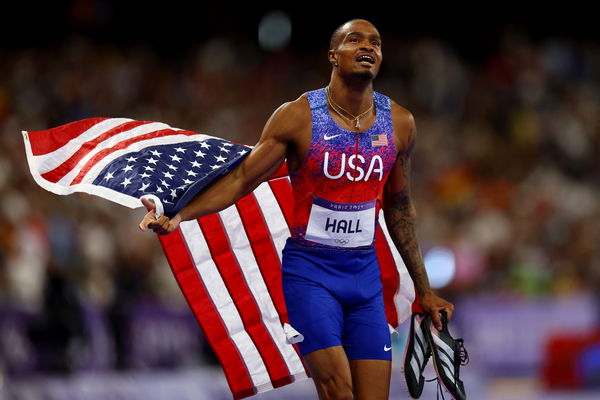
ADVERTISEMENT
“Most of the time, I come out really slow, and then, like I said, I race myself back into shape. I give myself— I tell myself—three, four meets. After the fourth meet, or third or fourth meet, I’ll be ready to go. And that gives me four trials.” Hall’s jaw-dropping 43.40s Olympic gold run last year set the tone for what many assumed would be a dominant follow-up season.
ADVERTISEMENT
Fans expected a victory lap through the Grand Slam Track opener in Kingston, but Hall shocked everyone by pulling out. His agent chalked it up to a “slight niggle,” but when he also withdrew from Miami, speculation soared. Was something more serious going on? As it turns out, the answer had been hiding in plain sight, and Hall didn’t keep it secret for long.
Track & Field Gazette later posted a video that gave fans the full picture. In an emotional interview, Hall revealed that the injury story began during the Olympic final itself. It was a stunning revelation, considering he still managed to run a world-leading 43.80 in Monaco and post a personal best of 43.40 in Paris. All while battling that injury. His withdrawal from the Grand Slam Track may have raised eyebrows, but his decision to race internationally proves it: Quincy Hall isn’t fading. He’s fighting.
ADVERTISEMENT
From setbacks to stage lights: Quincy Hall’s calculated comeback
Now halfway across the globe, Quincy Hall has chosen the Diamond League as the proving ground for his return, and it’s not just a detour. It’s a statement. While his name may have been pulled from the Grand Slam Track series, Hall isn’t hiding from the big stage; he’s rewriting the script. The Olympic champion made the difficult call to sit out the Jamaica leg to fully recover, a decision that cost him a hefty $200,000 in lost earnings.
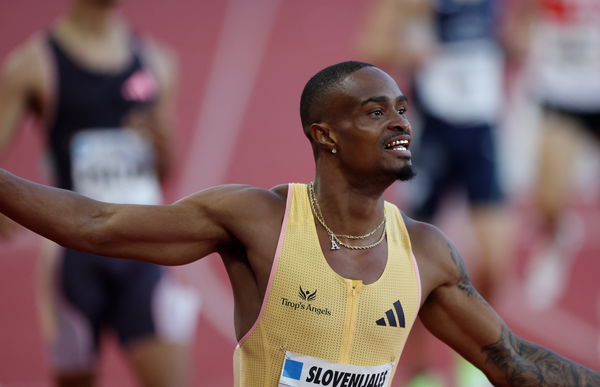
ADVERTISEMENT
By the time GST touched down in Miami, Hall had formally stepped away, allowing Bahamas star Steven Gardiner to fill his lane. But if there’s one thing Hall’s shown the world, it’s that he doesn’t let setbacks define him. That resilience has been years in the making. Born and raised in Kansas City, Hall’s path to Olympic stardom didn’t just begin with talent. It began with trust. Trust in his family, in his coaches, and in himself.
Top Stories
Cowboys Legend Deion Sanders Announces NFL Boycott After 32 Franchises Disrespect Son Shedeur Sanders
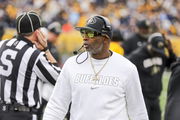
Team USA Overturn Milan Decision to Bring in Ilia Malinin as Team Gold on Stake
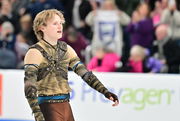
5 Biggest Names to Miss the Cut at WM Phoenix Open 2026
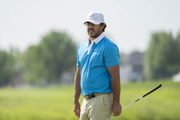
Rickie Fowler Admits to Battling Worrying Health Condition Amid Golf Return: ‘On Pain Meds All Year’

Patrick Mahomes’ Dad Faces 10-Year Prison Sentence After Chiefs QB’s Father Reportedly Violated Probation Terms

Multiple PGA Tour Pros Stopped from Playing as WM Phoenix Open Round Is Canceled Over Recurring Problem

His parents saw his potential early and nurtured it, laying the emotional and mental groundwork for what would follow. Under Coach Curtis Allen at the College of the Sequoias, Hall’s speed turned heads. And by 2019, he had stamped his name onto the NCAA scene, winning the 400m hurdles title at South Carolina with a time of 48.48. Injuries hampered his Tokyo 2021 campaign, but the fire never faded and neither did his family’s belief in him.
ADVERTISEMENT
At the heart of that unwavering support is his mother, Leica Hall. From the start of his career to the top of the Olympic podium, she’s been a constant. Alongside Quincy’s father, Milton Leica has championed her son through every season, setback, and success. When Quincy roared to gold in Paris, she had her hands in the air and her heart in her throat, watching her son’s dream come true. So as he laces up for Rabat and beyond, Hall isn’t just running on talent. He’s powered by a foundation that refuses to crack.
ADVERTISEMENT
ADVERTISEMENT
ADVERTISEMENT